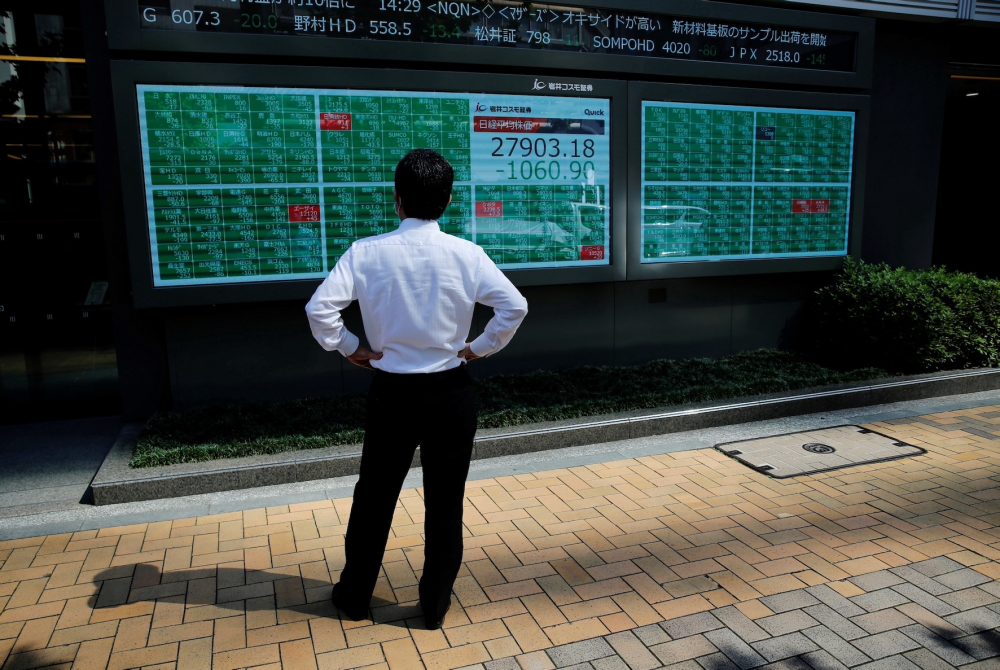Asian stocks saw a mixed end to the week with worries over recession and inflation continuing to spread an air of gloom but with losses capped by hopes the US Fed might be about to ease back on its aggressive rate hikes policy.
Japan reported higher-than-expected inflation and that saw benchmarks fall in Tokyo, Seoul and Hong Kong, but rise in Sydney and Shanghai. Oil prices advanced.
Data on inflation in Tokyo for November beat analysts’ expectations, with the core consumer price index showing a 3.6% rise, the highest in more than four decades.
Also on AF: Stellantis Eyes India to Create Affordable EVs for Export
The Nikkei ended lower after hitting a more than two-month high in the last session, as investors sold heavyweight chip-related and growth stocks.
The Nikkei share average fell 0.35% to close at 28,283.03 but gained 1.37% for the week. The broader Topix was down 0.04% to 2,018.00 but jumped 2.59% for the week.
“Investors sold shares for profit-taking today. That was seen in chip-related stocks, which were strong in the past few sessions,” said Shuji Hosoi, senior strategist at Daiwa Securities.
Meanwhile, investors’ eyes continue to be focused on China’s lockdowns and restrictions to curb the spread of coronavirus infections, as the direction China takes will have a significant impact on the rest of Asia.
China reported record high Covid infections on Thursday, with cities nationwide imposing localised lockdowns, mass testing and other curbs, snuffing out recent optimism about the world’s second largest economy moving from strict zero-Covid policies to living with the disease.
“Investors are right to be worried,” said ING‘s Carnell. “They still in China don’t have the adequate health network that they would be able to deal with a full-on outbreak with lots of people getting sick.”
Mainland Chinese blue chips, though, rose 0.51%, buoyed by government measures to support the real estate market. An index of property developer shares surged 5.33%.
The Shanghai Composite Index rose 0.40%, or 12.38 points, to 3,101.69, while the Shenzhen Composite Index on China’s second exchange dropped 0.70%, or 13.96 points, to 1,984.18.
The Hang Seng Index dropped 0.49%, or 87.32 points, to 17,573.58, with a tech sell-off leading the retreat.
US Treasury Yields Dip
Elsewhere across the region, Australia’s S&P/ASX 200 rose 0.24% while South Korea’s Kospi edged down 0.14%.
Indian stocks inched up with Mumbai’s signature Nifty 50 index rising 0.16%, or 28.65 points, at 18,512.75.
Globally, US long-term Treasury yields sank to a more than seven-week trough while the dollar dropped to near recent lows against other major currencies as markets continued to digest dovish signals from the Federal Reserve.
The 10-year Treasury yield dipped to 3.659%, the lowest since October 5 in Tokyo trading, after Thursday’s US Thanksgiving holiday. The two-year yield slipped to a one-week bottom at 4.44%.
The dollar index, which measures the greenback against the euro, yen and four other rivals, hovered not far from Thursday’s low of 105.62, and last stood at 105.86.
A “substantial majority” of Fed policymakers had agreed it would “likely soon be appropriate” to slow the pace of interest rate rises, minutes of their latest meeting showed on Wednesday.
Futures markets show investors now see US rates peaking just above 5% around May, and are pricing in roughly two-thirds odds that the Fed slows to a half-point hike on December 14 from a string of 75-basis-point increases.
US S&P 500 E-mini futures pointed 0.2% higher for the restart of Wall Street trading on Friday.
Oil rose slightly, paring a little of this week’s losses, which have been driven by worries about Chinese demand and expectations a high price cap planned by the Group of Seven nations on Russian oil will keep supply flowing.
Key figures
Tokyo – Nikkei 225 < DOWN 0.35% at 28,283.03 (close)
Hong Kong – Hang Seng Index < DOWN 0.49% at 17,573.58 (close)
Shanghai – Composite > UP 0.40% at 3,101.69 (close)
London – FTSE 100 > UP 0.31% at 7,489.65 (0945 GMT)
New York – Dow <> CLOSED Thursday
- Reuters with additional editing by Sean O’Meara
Read more:
Consumer Inflation in Tokyo Rises at Fastest Pace in Decades
China Banks Promise Ailing Developers $162 Billion in Credit
























